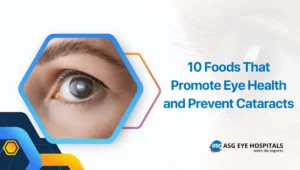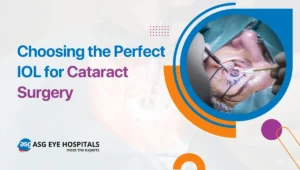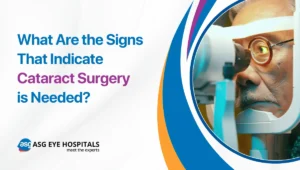Introduction
Hypertension, often known as high blood pressure, is a widespread health issue that affects millions of people in India and all around the world. Although it is well known that it increases the chance of developing heart disease and stroke, many people are unaware that it can also have a substantial negative influence on their vision. This in-depth tutorial will examine the connection between high blood pressure and vision issues, the possible dangers associated with it, and how to protect your eye health while controlling hypertension.
Understanding High Blood Pressure
A persistent medical disease known as high blood pressure causes excessive pressure to be placed on the artery walls when blood is pushed through the body. It is commonly expressed as two numbers: systolic (the pressure during a heartbeat) and diastolic (the pressure between beats), and it is measured in millimeters of mercury (mm Hg). A measurement of 120/80 mm Hg is considered to be normal.
When your blood pressure continually rises above these healthy ranges, it can put strain on your heart, blood vessels, and other organs and cause serious health issues. This includes vision and eye impairment, which we shall discuss in more detail in a moment.
The Link Between High Blood Pressure and Vision Problems
Your vision is not directly impacted by high blood pressure in the same way that, for instance, an eye injury may be. Nevertheless, smoking can cause a number of eye issues and difficulties, mainly because it strains your blood vessels and reduces blood flow to your eyes.
- Hypertensive Retinopathy: Hypertensive retinopathy is one of the most well-known eye disorders linked to high blood pressure. This problem develops when high blood pressure damages the blood vessels in the retina, the light-sensitive tissue in the back of your eye. If hypertensive retinopathy is not treated, symptoms may include blurred vision, alterations in vision, or even total blindness.
- Changes in Vision: Having high blood pressure can cause vision changes, such as seeing spots, having visual disturbances, or having trouble focusing. These symptoms, which might be temporary or persistent, must never be disregarded.
- Optic Neuropathy: High blood pressure can harm the optic nerve, which is necessary for carrying visual information from your eyes to your brain. This condition is known as optic neuropathy. In severe circumstances, optic neuropathy can cause vision loss and possibly blindness.
- Increased Risk of Eye Diseases: Having high blood pressure raises your risk of developing glaucoma and macular degeneration, as well as other eye conditions. These diseases are more prevalent in people with hypertension, despite the fact that the exact processes are not entirely known.
Preventing Vision Problems Caused by High Blood Pressure
Fortunately, there are things you may take to lower your risk of high blood pressure-related visual issues:
- Manage Your Blood Pressure: Keeping your blood pressure under control is the best approach to stop visual issues brought on by hypertension. This entails visiting your doctor on a regular basis, according to their recommended course of treatment (which may involve drugs, lifestyle modifications, or both), and monitoring your blood pressure at home as directed.
- Adopt a Heart-Healthy Lifestyle: Changing one’s lifestyle is essential for controlling blood pressure. Include the following routines in your life:
– Consume a diet that is well-balanced and full of fresh produce, healthy grains, and lean proteins.
– Reduce sodium (salt) intake since too much salt might cause blood pressure to rise.
– Maintain a healthy weight by working out frequently and watching your intake of food.
– Drink in moderation and abstain from cigarettes. - Regular Eye Exams: It’s important to have regular eye exams even if your blood pressure is normal. Effective treatment of eye problems depends on early detection. To check for any signs of hypertensive retinopathy or other related problems, people with high blood pressure should have their eyes examined more frequently.
- Medication Compliance: Follow the directions on any prescription drugs your doctor gives you to control your high blood pressure. These drugs can slow the development of hypertension and the accompanying vision issues.
- Stress reduction: Prolonged stress can increase blood pressure. Include stress-reduction methods into your regimen, such as yoga, meditation, or deep breathing exercises.
Conclusion
In India and throughout the world, high blood pressure is a common cause of health problems that affect not only the heart but also other organs like the eyes. The link between hypertension and visual issues, including hypertensive retinopathy, optic neuropathy, and an increased risk of eye illnesses, emphasizes the significance of aggressive management.
You can dramatically lower your risk of developing hypertension-related vision issues by managing your blood pressure with medication, lifestyle modifications, and routine check-up’s. Putting your eye health first by getting regular eye exams guarantees that any problems are found and addressed quickly, reducing long-term repercussions.
Keep in mind that your eyes are also windows to your general health in addition to being windows to your soul. Your whole health depends on taking action to protect your vision, which begins with effectively controlling excessive blood pressure.
To experience better and healthier vision for years to come, include these measures into your life, communicate frequently with your healthcare professional, and place a high priority on your eye health.



